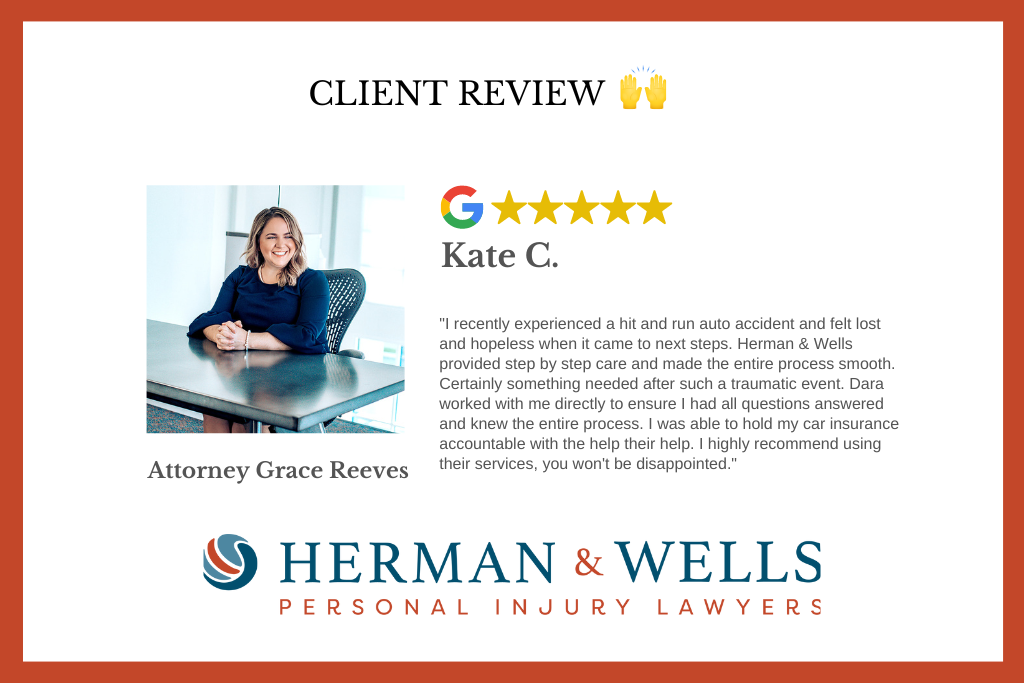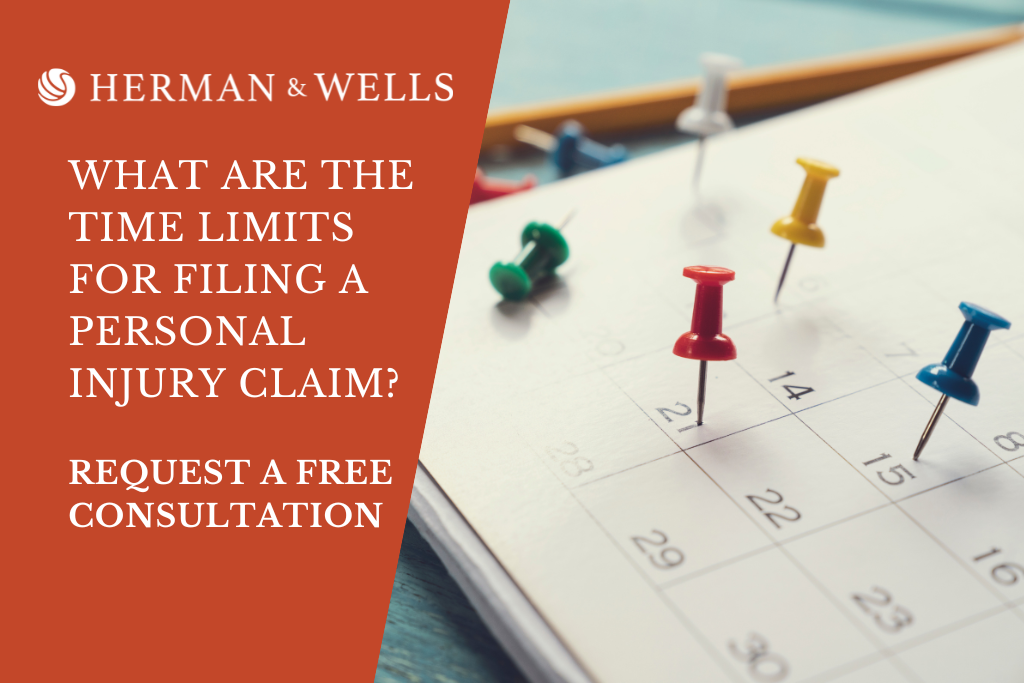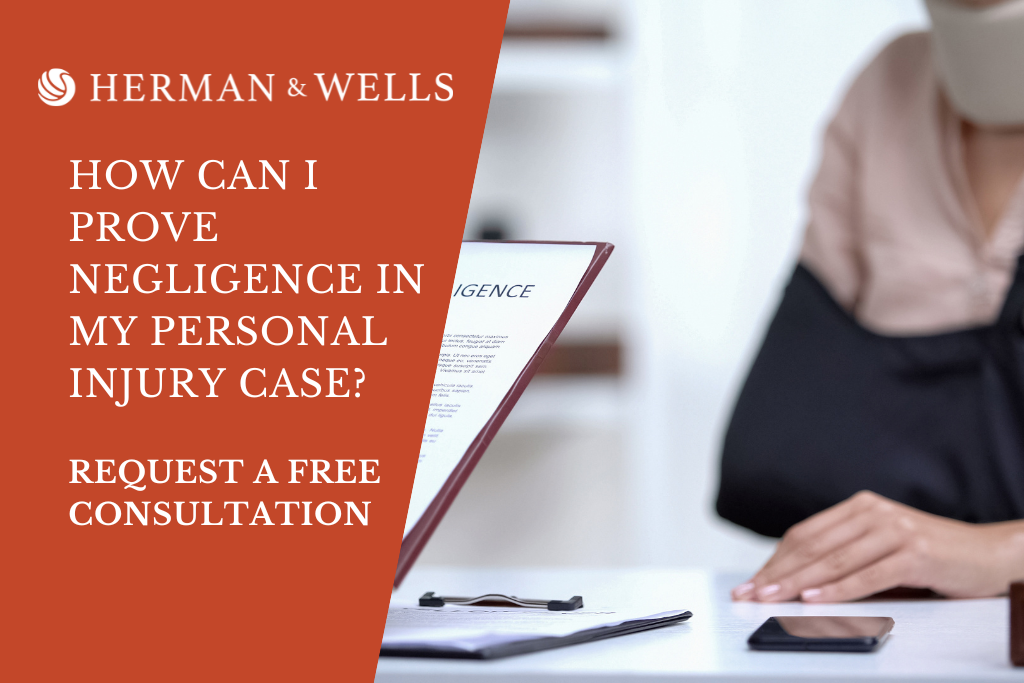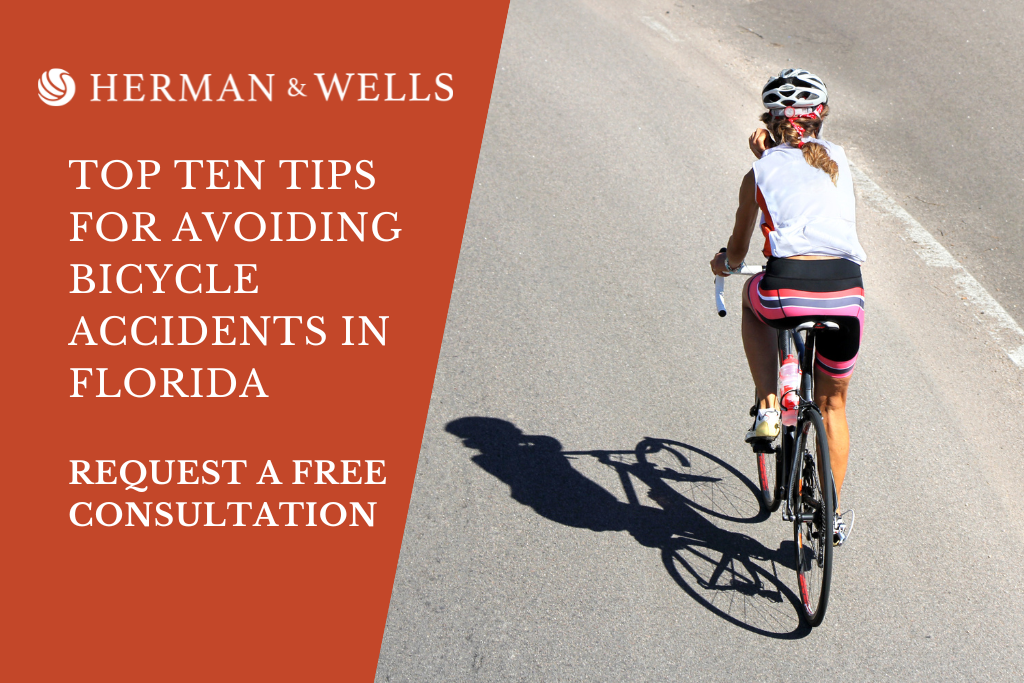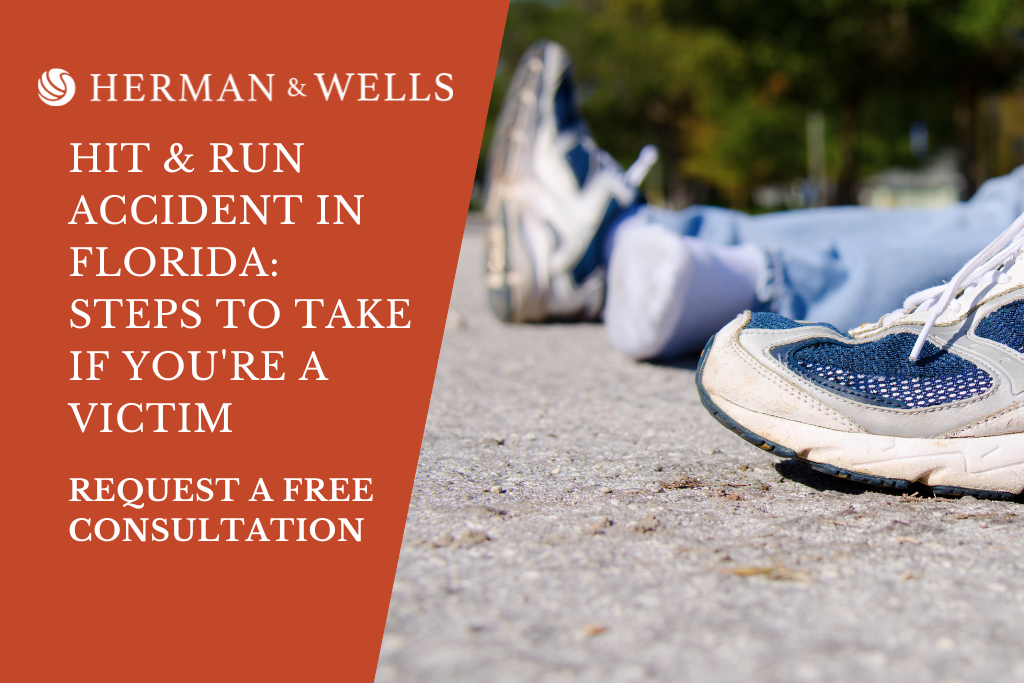If you’ve been injured in a slip and fall accident in Florida, chances are you have questions about what to do next. Maybe your medical bills are piling up and you don’t know how to pay them. Perhaps the insurance company is giving you the runaround or refusing to cover your expenses at all. Or perhaps, worst of all, the person who caused your injury won’t take responsibility for their actions–but that doesn’t mean justice is out of reach!
Filing an injury claim can help cover costs associated with medical care and related losses. In this blog post, we’ll explain everything you need to know about making a successful injury claim after a slip & fall accident in Florida so that you can get back on track as quickly as possible.
If you’ve been injured in a slip and fall accident on someone else’s property, contact Herman and Wells. Let us fight to get you the compensation you deserve for your injuries. Schedule a consultation with one of our personal injury attorneys today!
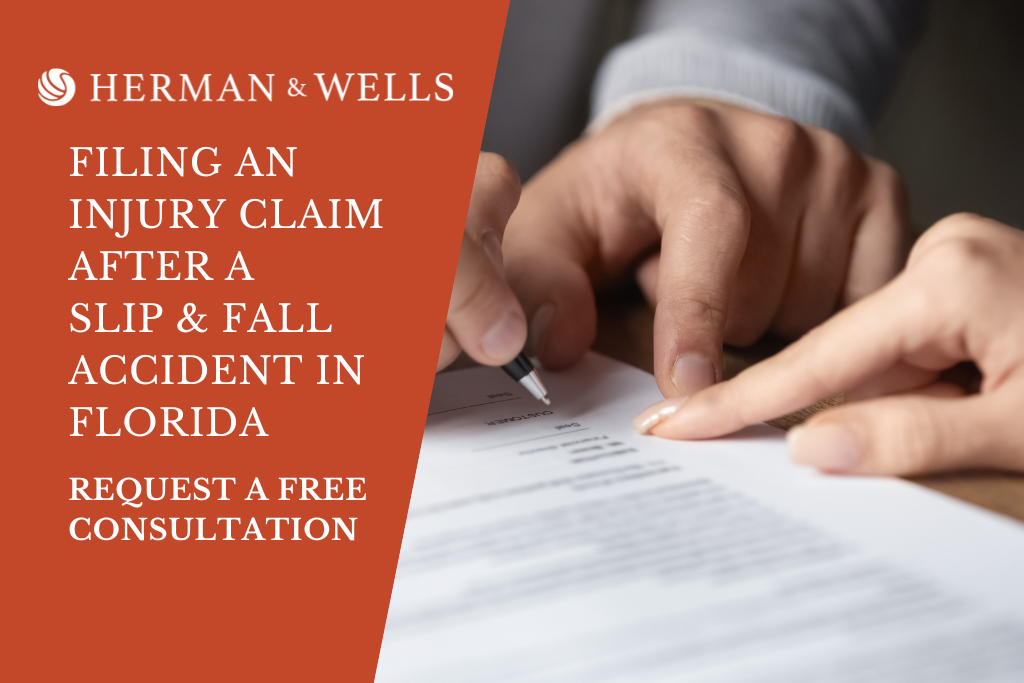
The Cliff Notes: Key Takeaways From This Post
- 1Seeking medical attention, documenting the accident scene, and reporting the accident are crucial steps to take after a slip and fall accident in Florida.
- 2Navigating the personal injury claim process involves determining liability, dealing with insurance companies, and filing a comprehensive claim with the appropriate court.
- 3Hiring a skilled personal injury attorney is highly recommended for slip and fall cases in Florida as they can greatly influence the outcome of your claim.
- 4At Herman & Wells, we are dedicated to guiding you through every step of the process and securing fair compensation for your personal injury claim. Contact us today for a consultation.
Understanding Slip & Fall Accidents In Florida
Florida’s slip and fall laws are dictated by the premises liability principle. This legal framework stipulates that property owners have a duty of care to maintain safe conditions and promptly address potential hazards. Failure to do so, resulting in an accident, can lead to a viable personal injury claim.
Common Causes Of Slip & Fall Accidents
Slip and fall accidents are caused by a myriad of factors, often due to negligence or oversight. Here, we’ll delve into some of the most common causes that pave the way for these unfortunate incidents in Florida.
Wet And Slippery Surfaces
Frequent culprits of slip and fall accidents are wet and slippery surfaces. These could be due to spillages, cleaning activities, or weather conditions such as rain or ice. It’s the responsibility of the property owner to ensure such hazards are promptly attended to prevent accidents.
Poor Lighting
Poorly lit areas can contribute to falls by making it hard to see potential obstacles or hazardous conditions. This is particularly problematic in stairwells, hallways, and parking lots.
Uneven Surfaces
Uneven surfaces such as cracked sidewalks, potholes, loose floorboards, or unsecured rugs can cause someone to trip and fall. Property owners have a duty to keep their premises in a safe, walkable condition.
Cluttered Floors
Unnecessary clutter on the floors, especially on walkways, can easily cause someone to trip and fall. It’s crucial for premises to be kept clean and free of obstacles.
Remember, if any of these conditions led to your slip and fall accident in Florida, you might have a valid personal injury claim.
Important Steps To Take After A Slip & Fall Accident
Seeking Medical Attention
Seeking immediate medical attention is not just crucial for your health, but it also serves as a vital step in your personal injury claim process in Florida. Medical records serve as compelling evidence, documenting the extent of your injuries, the treatment needed, and the associated costs. Thus, ensure you consult a healthcare professional promptly after your slip and fall accident, even if your injuries seem minor initially.
Documenting The Accident Scene
Accurate documentation of the accident scene can greatly strengthen your personal injury claim. It’s crucial to capture the details such as the site of the accident, the hazardous condition that led to the fall, and any warning signs or lack thereof. These aspects could serve as compelling evidence to substantiate your claim of negligence on the part of the property owner.
Reporting The Accident
Reporting the accident to the property owner or the relevant authority is another critical step. This creates an official record of the incident, thereby validating your claim. Ensure to obtain a copy of this report as it can serve as crucial evidence in your personal injury case.
Navigating The Slip & Fall Accident Claim Process In Florida
The process of filing a personal injury claim after a slip and fall accident can seem complex, especially when you’re dealing with injuries and emotional distress. This section aims to walk you through the intricacies of navigating the claim process in Florida, providing you with essential insights and practical tips to ensure that your rights are well protected.
Determining Liability
Determining liability is a crucial step in the slip and fall personal injury claim process in Florida. It’s about establishing who is at fault for the accident, usually due to negligence in failing to maintain safe premises. This task often requires in-depth investigation and legal insight, underscoring the importance of hiring a skilled personal injury attorney.
The Role Of Insurance Companies
Insurance companies play a pivotal role in the process of a slip and fall personal injury claim. They are typically involved in assessing the claim, determining liability, and ultimately, settling the compensation amount. However, it’s crucial to remember that insurance companies are businesses primarily looking to protect their own interests, often resulting in lower settlement offers. Therefore, having a seasoned personal injury attorney on your side can significantly increase your chances of securing a fair settlement.
Filing A Personal Injury Claim
Filing a personal injury claim after a slip and fall accident in Florida involves several legal procedures that must be accurately followed. It’s necessary to prepare a comprehensive claim that encompasses details about the incident, your injuries, and the substantiating evidence. This claim is then submitted to the appropriate court, initiating the lawsuit against the party at fault. Engaging a skilled personal injury attorney can help ensure that your claim is prepared correctly and filed within the stipulated time limits to avoid any potential legal obstacles.
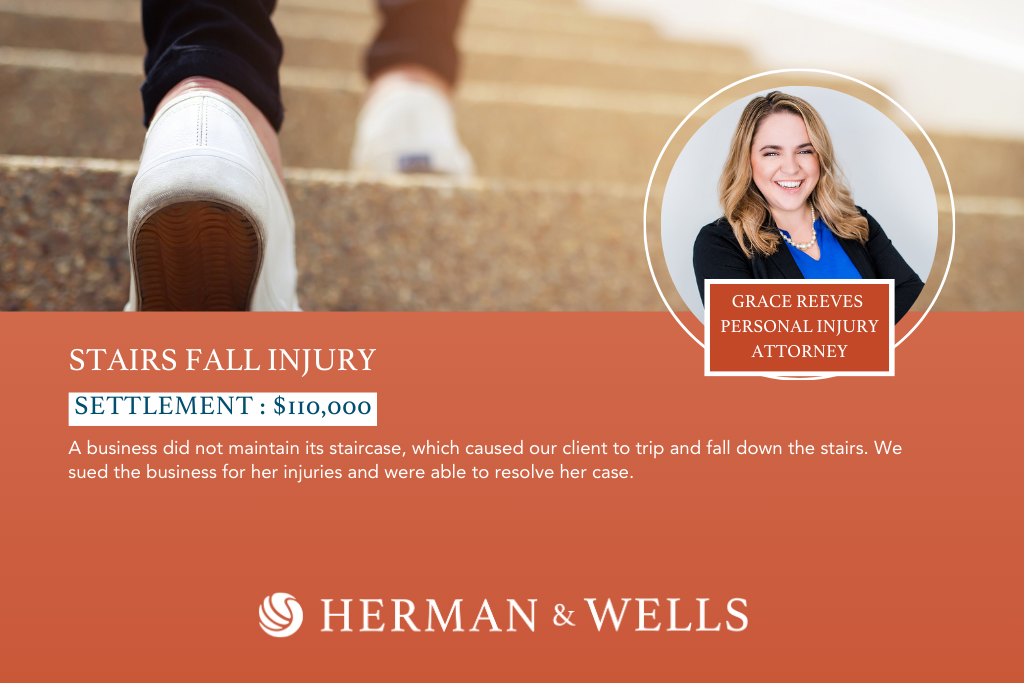
The Value Of Legal Representation In A Florida Slip & Fall Case
Assessing The Need For A Lawyer
Navigating through a slip and fall personal injury claim in Florida without legal representation can be a daunting task. It’s essential to understand that these cases often involve complex legal procedures and negotiations with insurance companies that are skilled at minimizing payouts.
How A Lawyer Can Help Your Personal Injury Claim
A competent personal injury lawyer can greatly influence the outcome of your slip and fall case in Florida. They have deep understanding and experience in dealing with complicated legal procedures, gathering critical evidence, proving negligence, and negotiating with insurance companies. Therefore, securing a skilled lawyer can be a game-changer in obtaining a fair settlement for your personal injury claim.
Contact Herman & Wells For A Consultation With Our Personal Injury Claim
At Herman & Wells, we are committed to guiding you through every step of your personal injury claim, ensuring your rights are protected and you receive the compensation you deserve. Slip and fall accidents in Florida can be complex, but you don’t have to navigate this challenging journey alone. With our extensive experience and strong dedication to our clients’ rights, we strive to secure the best possible outcomes.
Don’t hesitate—reach out to us and let us help you make your claim a success! Call (727) 821-3195 to schedule a free consultation today!
